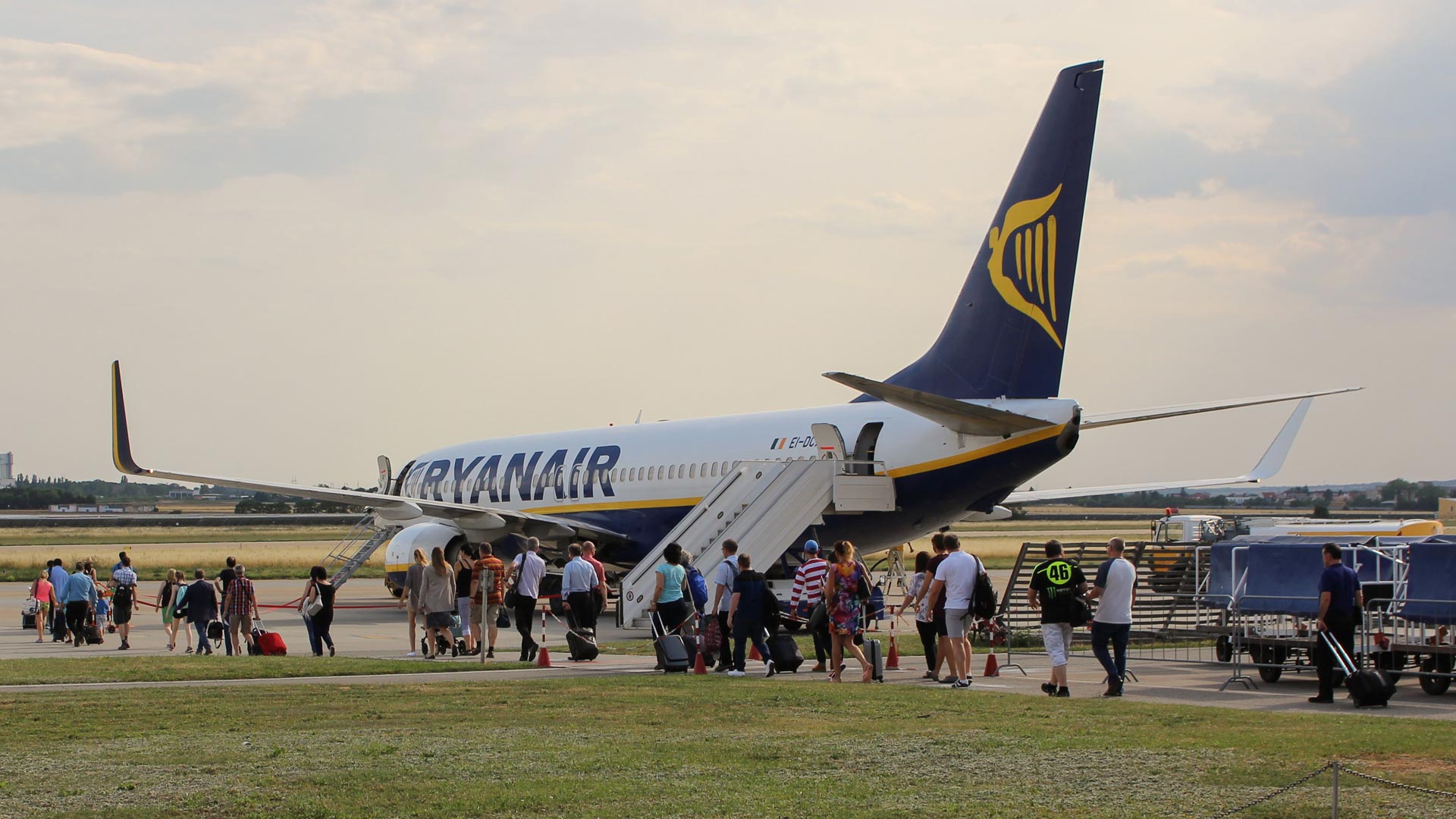Ryanair has reported a full year loss of €815 million – a sharp turnaround from a profit of €1bn in FY2020. Due to an 81% reduction in traffic and aircraft delivery delays, Ryanair says that it recorded a €200m ineffectiveness charge on fuel and currency hedges in FY21.
The European low-cost carrier suffered a loss of 81% of traffic during its fiscal year to the end of March 2021, from 149 million passenger to just 27.5 million due to travel restrictions imposed in the wake of the COVID-19 pandemic. Passenger load factors fell from 95% in FY 2020 to 71% in the last fiscal year.
Ryanair’s FY21 revenue fell by 81% to €1.64bn in line with the fall in traffic but the airline reported solid ancillary revenue as passengers that did fly opted for priority boarding and reserved seating, resulting in an 11% increase in per passenger spend to almost €22.
Ryanair has reduced its expenditure significantly, which fell by 66% in FY21 to €2.48bn from €7.37bn in FY20. The airline said that those savings came from senior management pay cuts and “modest” pay cuts elsewhere with minimised job losses. The airline confirmed that it had also negotiated lower airport costs and increased its firm order for the 737-8200 aircraft from 135 to 210 aircraft while securing “further, modest, price discounts” as well as “reasonable and fair compensation” from Boeing for the two-year delivery delay.
Ryanair “hopes” to take delivery of its first aircraft in late May and “hopes” to have over 60 aircraft in its fleet before the peak of summer 2022.
Ryanair described the past year as the most challenging in its 35-year history as Covid-19 caused traffic to collapse, “almost overnight”. However, the airline said that it reacted quickly to the crisis and stand ready to resume full service once normality returns.
The airline has made several well publicised challenges to the state aid granted to its rivals and highlights again the distortion it has and will continue to cause in EU competition and “prop up high cost, inefficient, flag carriers for many years”. Although the airline states that it expects intra-European air travel capacity to be “materially lower for the foreseeable future”, it is encouraged by the vaccination programmes and believes that if most European populations are vaccinated by September, as predicted, “we can look forward to a strong recovery in air travel, jobs and tourism in H2 of the current fiscal year (FY22). The recent strong increases in weekly bookings since early April suggests that this recovery has already begun.”
In the meantime, Ryanair retains a very healthy balance sheet, with €3.15bn in liquidity at the end of the FY21, with over 85% of its 737 fleet still unencumbered, giving it the ability to raise further funding as required. Since March 2020, Ryanair has participated in EU Government payroll support schemes, cancelled share buybacks and deferred non-essential capex. Ryanair has also successfully raised c.€1.95bn in new finance (incl. €400m share placing, €850m Eurobond and £600m CCFF) and confirms that cash was further boosted by “supplier reimbursements during the year”. Ryanair states that this financial strength will enable it “to capitalise on the many growth opportunities that will be available post Covid-19”.
Although Ryanair has not provided official guidance for FY22, it expects full year traffic to be towards the lower end of it previously guided range of 80m to 120m passengers, and cautiously expects to reach breakeven point for the year, which assumes a successful rollout of vaccines this summer that allows for the easing of European travel restrictions on intra-European traffic in time for the peak summer travel period.

